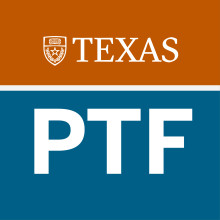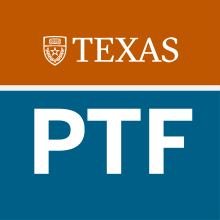Individual Fellow Initiatives

Interprofessional Simulation In Pediatric Medicine
Interprofessional education (IPE) is an essential component of all healthcare training and has a growing role in the UT College of Pharmacy curriculum. Additionally, the use of simulations in IPE can provide students with real-world, real-time scenarios that can help build interpersonal skills and pharmacotherapy knowledge in students.

QR Learning for addressing social and racial injustice
The current proposal envisions developing alternative pedagogical materials for the “Measuring Racial Inequality” course, written in plain language and accessible to students from social sciences/humanities and underserved communities and families.

Disability Justice as Pedagogical Practice
Within social work curriculum, the topic of disability is either explicitly absent or medicalized. The lack of a rich understanding of disability as a cultural experience that intersects with other cultural experiences is concerning given our ethical guidelines of cultural competence and equity. Additionally, not only are students excluded via this omission, but so are faculty, staff, and social workers working in the field. Approximately a quarter of the population identifies as having a disability, yet our curriculum barely acknowledges their experiences.

Implementing Computational Modules into the Materials Science and Engineering Undergraduate and Graduate Curricula
The development of increasingly powerful computational resources has made computational competencies new core forms of literacy that should be formed as part of basic education across all STEM fields.

Building Rigorously Compassionate Syllabi: Fostering Individual Accountability and Community Care
Our project seeks to revitalize the syllabus document as a tool of inclusion. We are interested in making visible the “hidden curriculum” with which students often struggle. The syllabus language, grading and attendance policies, communication and assignment fulfillment methods, course calendar flexibility, course material formats – these can all contribute to developing personal accountability and investment in community.

Teaching Engineering through Murder Mysteries and Personalized AI Tutor
CE 357: Introduction to Geotechnical Engineering is a third year required undergraduate course that has traditionally been a challenging course for students due to its abstract nature. The average course rating for CE 357 is 3.8 in the last twenty years. I have successfully transformed the lecture modules to achieve a significant increase in interest and students’ performance in the course. Although preliminary work looks promising, I want to scientifically evaluate the effectiveness of the course and publish the findings.

Strengthening the Sustainability Studies Degree
Sustainability Studies graduated its first sizeable cohort in 2022, and the program has yet to undergo a comprehensive review. Conversations with students revealed their desire for better access to the professional field of sustainability across the sectors of non-profit, government, and business. This is an area that the current structure of the degree does not adequately address. To address these concerns, I am proposing a three-pronged approach. My first initiative is to build a database of internships across the three sectors mentioned above.

Longhorn Mindfulness Project
This project focuses on mental health on campus. Specifically, the mental health and self-regulation challenges that mindfulness practices have been empirically shown to address: anxiety, depression, focus, and procrastination. There is strong empirical support for these benefits emerging around the 8-week mark of regular practice (10-15 minutes per day), which is feasible in the confines of the semester calendar.

Internship in the Media Industries
Internships have increasingly become a critical step in the college-to-career transition in the media industries and beyond.

Digital Research Apprenticeship: Projects For Intersectional Justice
Research and scholarship in Digital Humanities applies technology to humanities questions and subjects technology

Race, Democracy, and Global Social Justice: How Studying Inequality and Vulnerability can Transform the World
My initiative will achieve better learning outcomes in undergraduate and graduate students in History and the LBJ School by examining the intersection of history and contemporary policy, specifically its disparate impact on communities of color. Currently, departments, centers, faculty and students work independently of one another and lack valuable opportunities to collaborate. Genuine collaboration has evolved into a rare and difficult concept.

Mentored Research Learning: An Evaluation
Mentored research defies the traditional higher education approach, which separates research and teaching into distinct activities. Instead, mentored research fully integrates faculty research activities and student learning. In this approach, researchers do not simply carry out their research in isolation with a paid set of PhD-level research assistants. Further, students do not simply learn from in-class lectures or more traditional out-of-classroom experiences, such as study abroad.

Towards an Anti-Racist Climate in Nursing
(Project completed 2021) Systems of oppression gain their power from silence. Faculty in the School of Nursing and across the country are not always comfortable engaging in conversations about race and racism, but these discussions are necessary in order to address the disproportionately poor health outcomes experienced by BIPOC. In response to student and faculty concerns, this project seeks to move our school towards an antiracist climate by targeting multiple layers.

Medieval Digital Research Lab: A Pilot Upper-Division Course
The idea for this pilot course grows directly out of departmental and university goals to increase opportunities for Experiential Learning and for new technology exposure in the Humanities; and to involve more undergraduate students in original faculty research.

Data Analysis Tools: Integrating Computational and Statistical Techniques in the Environmental Engineering Curriculum
The goal of this project is to train the next generation of environmental engineers in computing and statistical techniques to solve big data problems. Current undergraduate students in the Department of Civil, Architectural and Environmental Engineering have little to no exposure to computational and statistical methods for data analysis (e.g., big data collected from sensor networks). I proposed to integrate computational techniques in several courses throughout the Environmental Engineering Degree.

A Sustainable Way to Teach Data Mining and Mapping: Proof of Concept For a Flipped Computational Skill Instruction Module
This project is directed at students with no prior knowledge of computer programming languages. When introducing complex and new skills such as computer programming in a classroom, teachers are often confronted with a lot of worried students and great numbers of very different questions, especially in humanities departments. The lecture setting is not well suited to address the needs of individual students.

Race and Curriculum Revision Project
While the U.S. is more racially open and culturally diverse than at any other time in its history, intolerance and marginalization—often around issues of race, culture and difference—continue to exist. This is punctuated in university settings where students of color find more access to opportunity, yet encounter socially and intellectually non-inclusive environments. UT-Austin stands at the forefront of concerns around race and equity, most recently with the Fisher decision and the current state lawsuit against UT-Austin regarding race discrimination in admissions.

The Keys to Understanding History: Unlocking Digital Timelines
This project started out with a simple idea: From my original proposal, we noted that “Current historical timelines are not interactive, nor do they enable students to understand connections between different events. They are good at showing chronology, but are not good at illustrating how specific events are influenced by a whole host of different historical factors.”

CREEES Fusion Room: an Interdisciplinary Digital Workshop
This project entailed the creation of a curricular context and physical space for collaborative interdisciplinary teaching and research for faculty and students interested in Russian, East European and Eurasian studies. This was achieved in two ways. First, I transformed the required gateway course to our major, “Introduction to Russian, East European and Eurasian Studies,” which had been a disjointed “parade of faculty” course with disconnected guest speakers.

Curiosity to Question: a Multidisciplinary Open-Inquiry Course Focused on Research Design
Hands-on research experiences for undergraduates offer unique active-learning experiences with real-world questions. These experiences create communities and improve 4-year graduation rates. They may also help create a student body and alumni population that recognize the importance of the research mission of large R1 universities.

McCombs Student Journal
The McCombs Business Journal was an effort to give students an opportunity to read and write about research. We recruited students, worked with the students to establish an organizational structure, set expectations for members, and selected student leaders. Students read a significant amount of research and wrote summaries, focusing on how that research impacts the real world.

Peer Learning Assistant Program Guidelines and Curricula
The Peer Learning Assistant Program within the Department of Chemistry is a program developed with resources from the Provost Teaching Fellows program to enhance the educational experience of students taking general chemistry by training and employing Peer Learning Assistants (PLAs) to service large blended general chemistry courses. The large (300 –500 students) blended courses have replaced the straight lecture model with active, student centered, learning. Active learning requires coaching and in a large class it is impossible to implement with only one instructor and one tea

Clinical Advancement in Simulated Environments
Among the communication disorders considered to be fundamental to the scope of practice for speech-language pathologists, stuttering or what is also commonly referred to as a fluency disorder has historically been and continues to be the disorder for which most speech-language pathologists report minimal to no clinical or academic exposure and/or competency.

